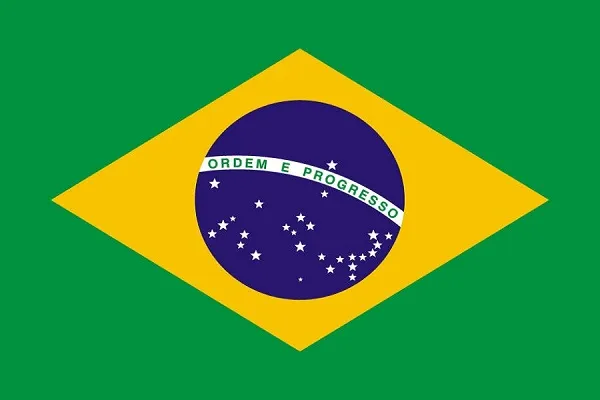According to Odair Rodrigues, CEO of B4—the first carbon credit exchange in Brazil—2024 will be crucial for stabilizing the carbon credit market, which is expected to accelerate with ongoing negotiations. This year alone, the exchange received around 200 listing requests in the first month.
Approximately 36 billion tons: this was the estimated amount of CO2 released into the atmosphere in 2023, according to projections by the Global Carbon Project, presented earlier this month during COP 28. This number represents an increase of nearly 1.5% compared to 2019, when the pandemic contributed to a slowdown in the global economy. In other words, industries, companies, and large corporations, despite being the driving force of the global economy, are also the biggest polluters and emitters of greenhouse gases.
In the parallel between the need to drive the global economy and reverse the situation of climate change and greenhouse gas emissions, carbon credits emerge. They were created in 1997 from the Kyoto Protocol, aimed at reducing greenhouse gases at that time. Today, 26 years later, B4 emerges as one of the solutions to facilitate the trading of these credits using blockchain technology.
“We have a term that was created over 20 years ago and has gained prominence recently, especially here in Brazil with the approval of PL 412 by the Senate Environment Committee in October, which raised discussions on the importance of regulated and voluntary carbon markets for reducing climate change. So, even though the concept of carbon credits has existed for many years, B4 needed to ‘raise its hand’ now to initiate a process of even more intense growth in the seriousness of the buying and selling of these assets through blockchain technology,” comments Odair Rodrigues, CEO of B4.
Since its market announcement in August 2023, B4 has received numerous listing requests—about 200 in the first month alone—with around 48 more on the company’s roadmap for analysis. No initiative has been effectively listed yet, mainly due to three factors: market maturation, compliance—which needs to be strict to ensure security for buyers of these credits—and publicity by the credit originator.
“These numbers from B4 show the market that there are many companies and individuals ‘keeping an eye’ on the movement around carbon credit trading. And this interest is truly important, especially if we take a macro view focused on what is really being discussed here: climate change and the need to reverse this situation by achieving Net Zero by 2050,” Rodrigues reinforces.
2023 served as a “showcase” for the market expected in 2024
In addition to the approval of the PL regulating the carbon market this year, COP 28 also brought various discussions about climate change. These two events, combined with the number of companies announcing carbon credit trading, led to a growth trajectory in the market that is expected to accelerate even more in 2024.
“B4 was originally scheduled to launch in mid-next year, but when we realized the carbon market was heating up rapidly, and that—most likely—no one would understand the liquidity of an exchange through blockchain technology, as we (due to B4 having emerged from an incubator with this technology), we decided to create our own Exchange, that is, our own exchange,” says B4’s CEO, who adds the importance of blockchain for the carbon market: “Today, there is still a lot of fraud, non-existent compliance, duplicate project listings, and many ill-intentioned companies in the carbon market. To address these issues, a technology like blockchain, which makes actions traceable and immutable, is extremely necessary. And that’s why we decided to position ourselves in 2023, showing the market that there are serious players wanting to do things right!” he concludes.
Speaking of exchanges, B3 itself announced in early December that it will partner with ACX Group (a platform for trading in the voluntary carbon credit market) to create an exchange next year. Although there is already the Brazilian carbon exchange—B4—it is important that such initiatives continue to emerge to reinforce the commitment of companies to the environment and to reducing climate change.
“The expectation is high for 2024, and I must emphasize that B4’s goal is for this carbon market to be united. That is, the more professional exchanges emerge with a real purpose of reducing the carbon footprint and helping companies monetize their assets sustainably, the better for the environment, which is our main focus here. So, I view the growth of this market positively and know that in 2024 we will have a significant ‘boom’ in negotiations of assets focused on sustainability, always with the purpose of climate action,” concludes Odair Rodrigues, CEO of B4.
About B4
Acting as a facilitator in the carbon credit market: this is one of B4’s main objectives, the first carbon credit exchange in Brazil, which was launched in August this year in São Paulo, at an event that gathered over 100 people, including representatives from NGOs, entrepreneurs, and investors.
Through blockchain technology, B4 presents a solution that transforms assets, meaning that carbon credit records are immutable, preventing credit duplication and ensuring a transparent and secure environment.
“B4 emerges exactly with the purpose of acting as a facilitator in this carbon credit market, which is extremely valuable and growing rapidly, not only in Brazil but worldwide. Our expectation is that the company will handle up to R$ 12 billion in carbon credits in the first year. Therefore, national regulation of this market is very important for us and also for all companies and organizations truly concerned with global sustainability,” says Odair Rodrigues.







